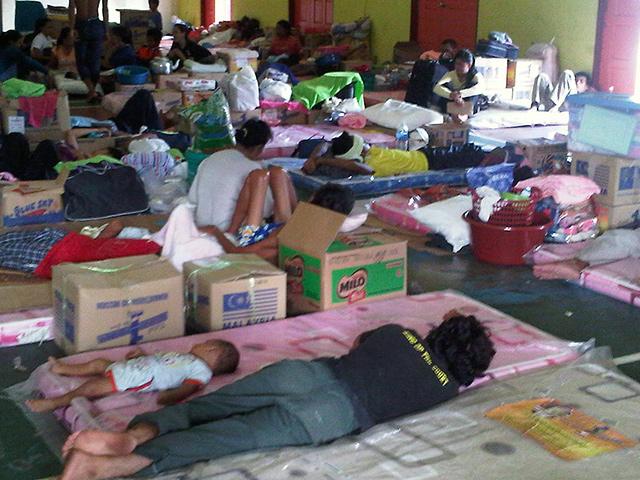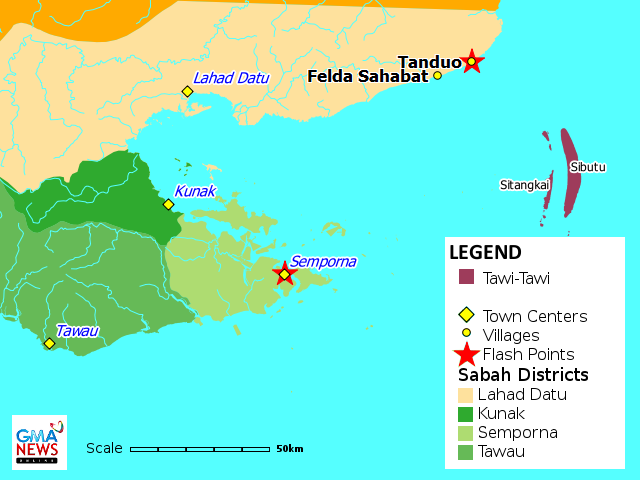- Joined
- Jul 19, 2012
- Messages
- 220
- Points
- 0
Ex-general blames military intel failure for prolonged Sulu crisis
UPDATED @ 02:43:46 PM 13-03-2013
BY CLARA CHOOI
ASSISTANT NEWS EDITOR
MARCH 13, 2013

Ghafir said the focus on local politics has diverted BSPP resources away from scouting for external threats. — File pic
PETALING JAYA, March 13 ― The “complete failure” by Malaysia’s military intelligence to pre-empt a Sulu group’s armed incursion into Sabah was to blame for the drawn out conflict in the east Malaysian state, former deputy army chief Lt-Gen (R) Datuk Abd Ghafir Abd Hamid said today.
Abd Ghafir, who is now a PKR member, blamed this on “political interference” in military intelligence operations.
He alleged that in the past decade, the Defence Staff Intelligence Division (BSPP) has been more focused on local politics than on gathering information on external threats.
“I stress here, there was a total and complete failure of intelligence. Our intelligence unit has not been functioning until now... our capability in terms of external foreign intelligence, our strength and assets have instead been used for political operations since 2000.
“When intelligence fails, we have a breach of our waters,” he told a press conference at PKR’s headquarters here.
“I stress here, there was a total and complete failure of intelligence. Meaning, our intelligence unit was not functioning so when the intruders arrived, we did not even know.
“Why this happened is because those responsible in the BSPP, our capability in terms of external foreign intelligence, our strength and assets have instead been used for political operations since 2000,” he told a press conference at PKR’s headquarters here.
The retired general said this had resulted in a failure by the unit to detect foreign threats, allowing armed intruders to sail into Malaysian territorial waters easily without being apprehended or detected.
“When intelligence fails, we have a breach of our waters... and because the waters in Sabah are very vast, if just two or three patrol vessels are there from our maritime force, I think it would be very difficult to intercept an incursion,” he said.
Abd Ghafir also claimed that indecisiveness on the part of the Malaysian government during the initial days of the incursion had also caused the conflict to prolong, resulting in the loss of Malaysian lives.
He said it took 23 days before the Malaysian forces were given the green light to launch an attack, and this allowed the Sulu invaders time to settle down and organise their troops.
Even worse, added Abd Ghafir, was that the landing of the over-200 gunmen to stake ownership over Sabah had merely been mildly described as an “armed intrusion”.
“When we use that definition, we face many limitations from the Geneva Convention. But these are armed aggressors who are here to take our land and threaten the lives of our people,” he said.
He pointed out that the Sulu gunmen, who claim to be members of the Sulu Sultanate’s “royal army”, had not landed in Sabah to “steal timber” or “steal fish”, which could have also earned them the same label of “armed intruders”.
“So we should have taken action earlier. Labelling them aggressors would have given us the right to protect our people and our territory but what happened what that 23 days went by and we only acted when our men were killed,” Abd Ghafir said.
Nine days after the Sulu gunmen landed in Kampung Tanduo, Lahad Datu, Home Minister Datuk Seri Hishammuddin Hussein said on Twitter that the group were merely “malnourished” and elderly men in sarongs and slippers.
“Fact: Most of the intruders old or malnourished. Wear sarongs/slippers..a few.. hv arms,” he had tweeted on February 18, according to a report on The Star.
The minister said this was the reason behind the restraint shown by the police towards the invaders, who have now been labelled “terrorists”.
Noting the flip-flop in the Malaysian authorities’ handling of the situation, Abd Ghafir demanded an apology from those responsible for the alleged “indecisiveness” during the initial days of the incursion.
“We must acknowledge that there was a failure. We as Malaysians should demand an apology from the government because it was due to their failures that lives of our security forces were sacrificed,” he said.
Since attacks between Malaysian forces and the gunmen started on March 1, a total of 67 people have been killed, including 56 Filipino militants, eight Malaysian policemen, two Malaysian soldiers and one teenage boy, whose nationality is still unknown.


















